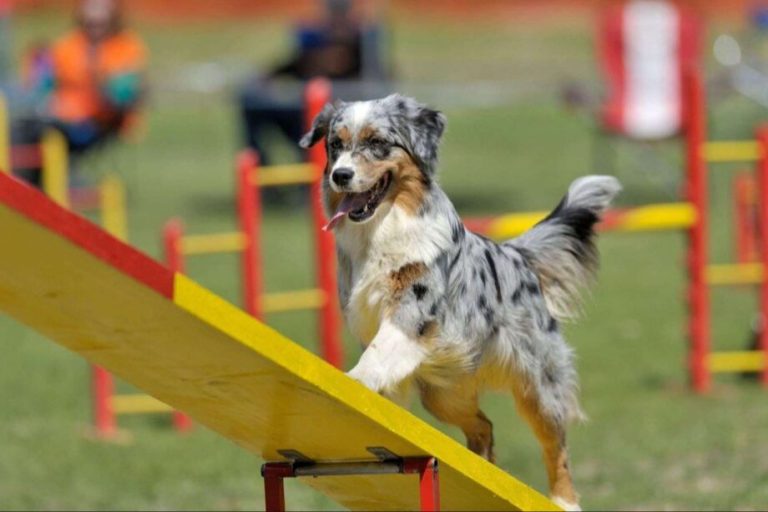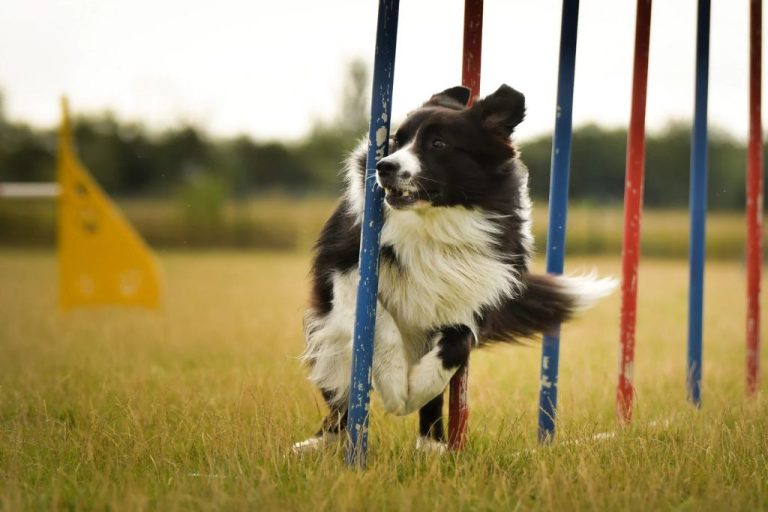Golden Retriever: Understanding This Beloved Breed
The Golden Retriever breed originated in Scotland in the mid-1800s. The Golden was bred as a gun dog to retrieve waterfowl during hunting, with a friendly and steady temperament. The breed remains very popular today as a family-friendly companion and service dog thanks to their intelligence, trainability, and affectionate nature. Goldens consistently rank as one of the most popular dog breeds according to AKC registrations, known for their beautiful golden-colored coats, devoted personalities, and willingness to please their owners.
The Golden Retriever was first developed near Glen Affric in the Scottish Highlands in the 1850s. Breeders crossed retrievers with the now-extinct Tweed Water Spaniel to produce a capable retriever of waterfowl that had a friendly temperament, intelligence, and work ethic. The breed gained prominence among British sportsmen and made its way to North America in the early 20th century. The American Kennel Club recognized the Golden Retriever as a breed in 1925.
Today, Goldens remain beloved as family pets and service dogs. Their sweet, gentle nature makes them wonderful therapy dogs, guide dogs, and search and rescue dogs. Goldens excel in dog sports like obedience, agility, and dock diving. Their trainability and eagerness to please also makes them star pupils in obedience training. As family companions, Golden Retrievers are patient, loving, and eager to be involved in family activities.
Appearance
Golden retrievers are medium to large sized dogs. Males stand between 23-24 inches tall and weigh 65-75 pounds while females stand between 21.5-22.5 inches tall and weigh 55-65 pounds (Source 1). Golden retrievers have a dense, water-repellent double coat that consists of a soft, thick undercoat and longer guard hairs. Their coat can be various shades of gold or cream. While very light goldens can appear nearly white, red or mahogany golden retrievers are not considered breed standard (Source 2).
Temperament
Golden Retrievers are known for having a friendly, gentle, and eager-to-please temperament. They are extremely affectionate dogs that bond strongly with their family and aim to please their owners. According to Your Purebred Puppy, Golden Retrievers are intelligent, well-mannered, and not prone to aggression or dominance issues. Their friendly and sociable nature makes them great family companions, especially for households with children. They are playful, patient, and gentle with kids. Additionally, their eagerness to please and high intelligence means they are highly trainable and adaptable to a variety of environments and situations.
While Golden Retrievers are energetic, their gentle temperament paired with an innate desire to be around people makes them wonderful pets for families. Their affectionate, loyal, and kind-hearted spirit has contributed to them being one of America’s most popular dog breeds for decades.
Activities
Golden retrievers excel in a variety of canine sports and activities. One of their original purposes was as a hunting dog, and they continue to thrive in hunting and field trials today. Their excellent noses make them skilled tracking dogs, following scents over long distances. Goldens are also popular participants in obedience competitions, where they demonstrate their intelligence and eagerness to please. Agility is another activity goldens enjoy, as their athleticism allows them to swiftly maneuver obstacles and jumps.
Additionally, golden retrievers are one of the top breeds used as service and therapy dogs. Their gently temperament makes them well-suited for visiting hospitals, schools, disaster sites, and more to provide comfort and affection. According to https://firsttimedogmom.com/golden-retriever-vs-goldendoodle/, over 60% of all dogs trained to be guide dogs for the blind are Labrador retrievers or golden retrievers.
Training
When it comes to training, Golden Retrievers are known for being highly intelligent and eager to please their owners. This makes them very responsive to positive reinforcement training techniques (Source). They are one of the easiest dog breeds to train, particularly when using reward-based methods like treats, praise, and play. Golden Retrievers thrive when training is turned into a fun, engaging game.

Golden Retriever puppies should start obedience training and socialization as early as 8 weeks old. Focus initial training on basic commands like “sit”, “stay”, “come”, and “down”. Puppies have short attention spans so keep training sessions short and upbeat. Be patient and use lots of encouragement and small food rewards. Consistency is key – everyone in the household should participate in training using the same techniques and commands.
Adult Golden Retrievers continue to benefit from ongoing obedience training and mental stimulation. Their high intelligence means they excel at learning new tricks and commands throughout life. Take advantage of their eagerness to please by teaching clever tricks. Goldens also enjoy and excel at dog sports like agility, flyball, dock diving, and obedience competitions.
Exercise
Golden Retrievers have moderate exercise needs due to their working dog heritage (Snowy Pines White Labs, 2022). They typically require 30-60 minutes of exercise per day. Golden Retrievers enjoy activities like retrieving balls or toys, swimming, playing fetch, and going for walks. The breed is athletic and energetic, so they thrive when given adequate physical and mental stimulation each day.
As puppies, it’s important not to over-exercise them, as their growing joints and bones can be damaged. Generally, a good rule of thumb is 5 minutes of exercise per month of age up to twice a day. So a 4-month-old pup could have 2 daily 20-minute walks. Adult Golden Retrievers can handle more vigorous exercise like hiking, running beside a bike, or playing off-leash in a safe area.
Golden Retrievers love water and many enjoy swimming. This is an ideal low-impact activity for the breed. Retrieving items like balls or sticks allows the dog to exercise its natural instincts in a mentally engaging way. Overall, Golden Retrievers flourish best with daily moderate activity tailored to their age and health.
Grooming
Golden Retrievers require regular grooming to keep their coats looking healthy and shiny. Their thick, double coats shed a lot, so weekly brushing is essential to remove dead hair and prevent mats from forming.
Brushing also helps distribute the Golden’s natural oils throughout their coat for a healthy shine. Using a slicker brush followed by a bristle brush is recommended (source). Be sure to brush against the direction of hair growth to lift out the undercoat.
Bathing Golden Retrievers too frequently can dry out their skin and coat. A bath every 6-8 weeks is typical, unless they get especially dirty. Use a moisturizing dog shampoo and thoroughly rinse out all soap residue (source).
Other grooming needs include regular nail trimming, checking and cleaning ears, and brushing teeth. Most Goldens will also need the hair between their paw pads trimmed for cleanliness and traction.
Health
Golden Retrievers are generally healthy dogs with an average lifespan of 10-12 years (source). However, like all breeds, Goldens are prone to certain health issues. Some of the most common health problems in Golden Retrievers include:
- Hip and elbow dysplasia – This is an inherited condition that leads to joint problems and arthritis later in life (source)
- Cancer – Goldens have a higher risk of developing certain cancers like lymphoma and hemangiosarcoma (source)
- Eye problems – Conditions like cataracts, glaucoma and retinal dysplasia can affect vision (source)
- Heart disease – Subaortic stenosis is a common heart defect seen in the breed (source)
There are some gender differences when it comes to Golden Retriever lifespan. Females tend to live a little longer than males on average, reaching 11-12 years compared to 10-11 years for males (source). With proper care and health screening, many Goldens live into their early teens.
Nutrition
A balanced diet is crucial for Golden Retrievers to stay healthy and avoid obesity. According to the Golden Retriever Rescue of Mid-Florida (GRRMF), the diet should consist of 25% protein, 8% fat, and around 5% fiber1. High quality proteins like beef, chicken, lamb, and fish should make up the majority of the diet. Both wet and dry food is recommended to provide variety.
Overfeeding is a common problem with Golden Retrievers, since they have large appetites. It’s important to monitor their weight and adjust food amounts accordingly. The GRRMF recommends cutting back kibble by 1/3 if your Golden becomes overweight, and replacing it with low sodium green beans1. Table scraps and excessive treats should also be avoided.
Some foods Golden Retrievers should not eat include chocolate, grapes/raisins, macadamia nuts, yeast dough, and anything too spicy or salty2. Owners should be aware of what human foods are safe for sharing.
Finding a Golden
When considering adding a Golden Retriever to your family, you have two options – purchasing a puppy from a breeder or adopting from a rescue organization. Both have their pros and cons.
If purchasing from a breeder, be sure to find one that is reputable and responsible. Look for breeders that health test their dogs, socialize puppies in their home, and provide health guarantees. Ask to meet the puppy’s parents and inspect their facilities. A good breeder will ask you questions as well to ensure their puppies go to good homes. Expect to be put on a waiting list and pay $1,000-$2,500 for a puppy from health tested parents. Reputable breeders can be found through referrals and online forums.
Adopting a Golden through a rescue organization also has benefits. Adoption fees typically range from $300-$500 and include veterinary care like spay/neuter, vaccines, and microchipping. Adopted dogs are often housetrained and socialized. The rescue can match you with the right dog for your home and lifestyle. Be patient as it may take time to find the perfect match. Check sites like Petfinder and reach out to local Golden Retriever rescues to begin your adoption search.





